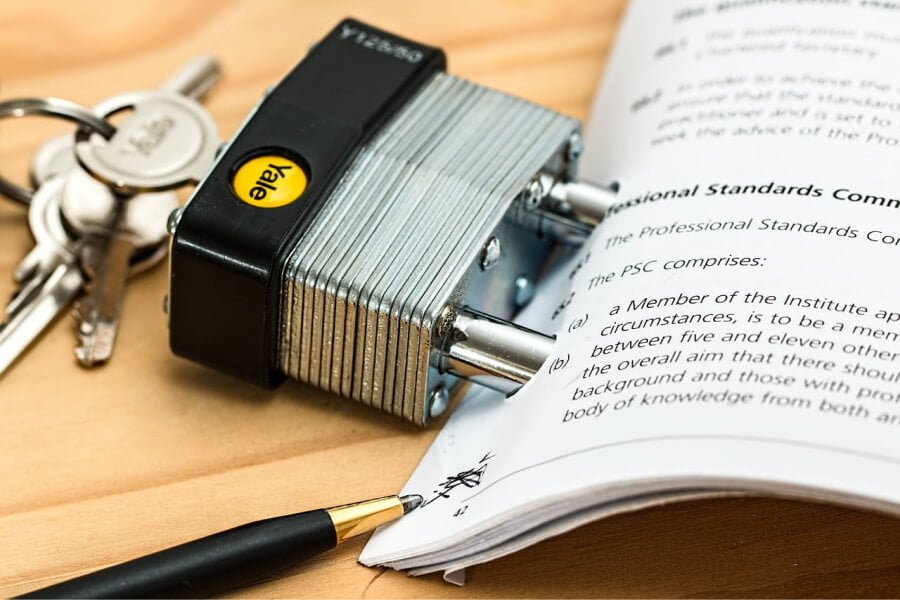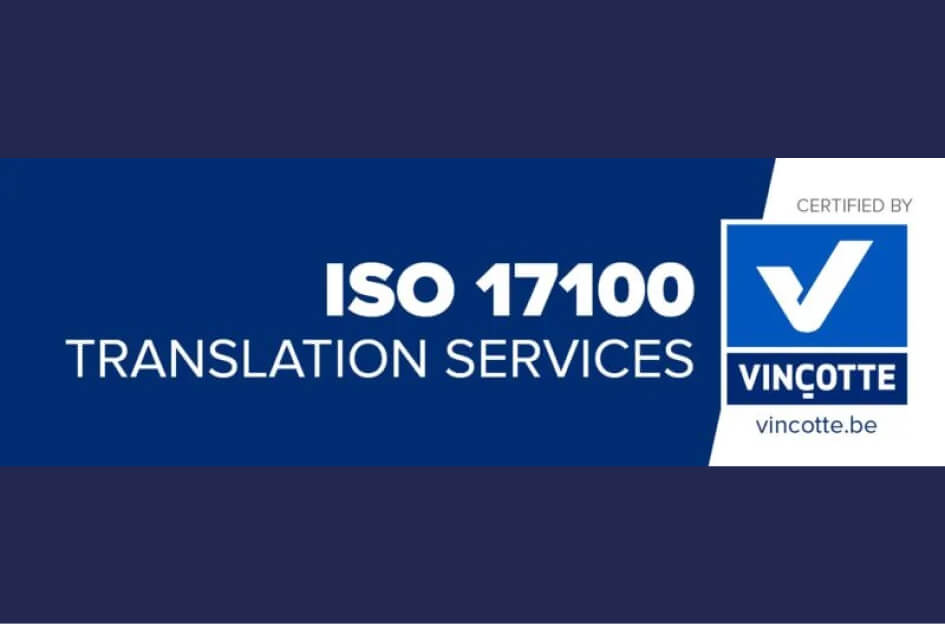Legal translation is more than changing words from one language to another. It is a specialized field involving language and law expertise. Have you ever wondered how legal documents are accurately communicated across different language and legal systems? That’s where legal translation theory comes into play.
With the increasing globalization and international interactions, the demand for legal translation has surged. Legal translators play a crucial role in accurately translating the legal texts, such as contracts, litigation papers, agreements, and court documents, and preserving their legal terminology.
Precision in literary translation is paramount in the complex world of law. A single mistranslation can have significant consequences on legal processes and outcomes. Therefore, professional legal translation services are essential to get precise results.
Legal translators possess linguistic skills and a deep understanding of intricate laws. They navigate through various legal systems, translating complex concepts and terms with accuracy.
So whether you need translations for law firms or assistance with understanding a foreign country and laws, legal translation services are indispensable in bridging the gap between different languages and legal systems.
Understanding Legal Translation: Definition and Significance
Legal translation services plays a crucial role in bridging language barriers within the global legal landscape. It involves the translation of various legal texts, such as contracts, court documents, and legislation. The significance of accurate, legal translation services cannot be overstated, as even minor mistranslations can have severe consequences.
What is Legal Translation?
Legal translation refers to the process of precisely translating various legal documents from one language to another while maintaining their accuracy and integrity. It requires specialized knowledge in both law and languages involved. Translators working in this legal field also must possess an understanding of legal systems, terminologies, and concepts to ensure precise translations.
The Significance of Accuracy
Accuracy is paramount. A mistranslation could lead to misinterpretations of contractual terms or statutory provisions, resulting in disputes or even lawsuits.
Inaccurate translations may also hinder effective communication between parties involved in cross-border transactions or litigation cases. Therefore, legal translators must exercise extreme caution and diligence to provide reliable translations that uphold the intended meaning and preserve the original text’s legal validity.
Bridging Language Barriers
One of the legal translators primary roles is to bridge language barriers in global legal landscape. They communicate between multilingual individuals to help them understand each other’s legal rights, obligations, and responsibilities.
Legal translators facilitate international business transactions by translating contracts accurately and ensuring that all parties comprehend their rights and obligations without any linguistic obstacles. They assist lawyers representing clients from different linguistic backgrounds during court proceedings by providing translated versions of relevant documents.
Terminology Challenges
Translating legal texts presents unique challenges due to their complex terminology. Legal systems often employ specific terms and phrases that may not have direct equivalents in other languages. Translators must possess comprehensive knowledge of legal terminology in both the source and target languages to accurately convey the intended meaning of legal language.
Moreover, legal concepts can differ greatly across jurisdictions, making it necessary for translators to navigate these differences while ensuring accurate translations. They must consider the legal context and choose appropriate language to convey the same legal meaning in any other language.
Avoiding Misunderstandings
Misunderstandings are a major concern in translating legal documents. Even the slightest errors or omissions lead to different interpretations of contracts are statutory guidelines and legal rulings. Legal translators should do meticulouslt pay attention to every detail and nuance of the original text to mitigate the risks.
Furthermore, they should continuously update their law and language knowledge to stay abreast of any changes or developments impacting their translations. This ongoing professional development maintains accuracy to avoid potential misunderstandings and save every involved party from adverse consequences.
Differences Between Legal Translation and Other Types of Translation:
Specialized Knowledge Required
Legal translation is a unique field that requires all law translators to have specialized knowledge in both law and language. Unlike other translation, legal text translation is full of jurisdiction-specific complex terminology. Professional legal Translators are fluent in the source language english translation and target languages as well as a deep understanding of legal concepts and principles.
Complex Terminology
The complex terminology of legal documents is one of the differences between legal translation and other translation. Legal texts contain uncommon terms which are not found in everyday language. These terms vary from one jurisdiction to another. Professional legal translators should comprehensively understand the source text and target language terminologies for an accurate job.
For example:
In English, “tort” refers to a civil wrong that causes harm or injury.
In French, “delit civil” is the equivalent term for “tort.”
Without this specialized knowledge, translators may struggle to accurately convey the intended meaning of legal documents.
Consequences of Errors
The consequences of errors in legal translations are often more severe than in other types of translations. A minor mistake or mistranslation could lead to serious legal implications, affecting contracts, court cases, or even international agreements. The accuracy and precision required in legal translation services demand meticulous attention to detail.
Consider the potential consequences if an incorrect translation changes the meaning of a contract clause or misrepresents evidence presented before a court. Such errors can result in financial losses, damaged reputations, or even prolonged litigation processes.
The Way Questions Are Handled
When translating legal texts, questions posed within the original document require careful consideration. The translation must accurately reflect whether a question is rhetorical, hypothetical, or requires a factual answer. This ensures that the intended meaning and purpose of the question are preserved in the target text or language.
For example:
“Did you witness the incident?” – A factual question seeking an answer.
“What if you had witnessed the incident?” – A hypothetical question exploring a scenario.
Translators need to analyze and interpret these nuances correctly to maintain the integrity of legal documents.

Importance of Legal Translation in Various Contexts:
Clear Understanding in International Business Transactions
Clear Understanding in International Business Transactions
Legal translation services facilitate clear communication during international transactions for better understanding of all involved parties. Accurate legal translation of business legal documents, contracts, and agreements is essential to ensure to comply with international laws and maintain business relevance during cross-border business expansion. It ensures that all parties fully comprehend business the terms and conditions to minimize risks of potential misunderstandings or disputes.
In an international business context, legal translation covers various areas such as commercial contracts, intellectual property rights, employment agreements, and financial documents. Without accurate translations of these vital legal documents, companies risk facing numerous challenges that could hinder their operations and profitability.
Accurate Translations for Immigration Processes
Another critical area where legal translation services hold immense importance is in immigration processes. Relocating individuals must provide passports, visas, birth certificates, educational qualifications, and employment records in destination country’s official language.
Accurate translations are help immigration authorities verify the application’s authenticity. Any errors or inaccuracies in the translations can lead to delays or even rejection of visa applications. Therefore, reliable legal translation services are vital for smooth immigration processes.
Participation in Justice System for Non-Native Speakers
Legal translation also plays a significant role in ensuring equal access to justice for non-native speakers within a country’s justice and legal system itself. When court proceedings take place involving individuals who do not speak the native language fluently or at all, accurate translations become indispensable.
By translating court proceedings into a language that non-native speakers understand proficiently, they can fully comprehend their rights and obligations during legal proceedings. This enables them to actively participate in their defense or prosecution without any linguistic barriers hindering their ability to present their case effectively.
Moreover, legal translators also play a crucial role during depositions and interviews with witnesses or suspects who do not speak the language of the court. Their translations help bridge the communication gap and ensure that all parties involved can fully understand and express their thoughts, ensuring a fair and just legal process.
Key Skills Required for Legal Translators:
Proficiency in both source and target languages
The first and most fundamental skill that legal translators must possess is a high level of proficiency in both the source and target languages. Accurate comprehension and expression are essential for ensuring that the translated text conveys the intended meaning without any loss or distortion. A professional legal translator should be able to understand complex legal documents written in the source language and accurately translate them into the target language while maintaining clarity, coherence, and precision.
In-depth knowledge of legal terminology, concepts, and systems.
A professional legal translator should be able to understand complex legal documents written in the source language and accurately translate them into the target language while maintaining clarity, coherence, and precision.
Strong research skills
Legal translators often encounter unfamiliar legal terms, or concepts that require extensive research to find appropriate equivalents across different jurisdictions. Therefore, having strong research skills is vital for a legal translator’s success. They should be adept at using reliable sources such as dictionaries, glossaries, academic papers, or even consulting subject matter experts when necessary. Thorough research ensures accurate translation choices that align with the specific legal requirements of each jurisdiction.
Attention to detail and accuracy
Precision is paramount. Even minor grammatical errors can have significant consequences in a legal context. Legal translators must pay meticulous attention to detail throughout their work process. They need to ensure that every word choice accurately reflects the original text’s meaning while taking into account any cultural or linguistic nuances involved.
Client-focused approach
A successful legal translator understands that their work serves the needs of their clients. They must adapt to the client’s requirements, preferences, and deadlines. Communication skills establish a clear understanding of the client’s expectations and address any concerns or questions during the translation process. A professional legal translator openly communicates with client to do a satisfactory job.
Experience and continuous professional development
Becoming a specialist in legal translation requires experience and continuous professional development. Legal translation services should actively seek opportunities to gain practical experience in translating legal texts, such as internships or collaborations with law firms or legal institutions. They should stay updated on changes in legislation, regulations, and terminology by attending relevant workshops, conferences, or online courses.
Challenges Faced in Translating Legal Documents:
Ambiguities or Gaps in Source Texts
Translating legal documents is a complex task due to ambiguities and cross-lingual language gaps. Legal documents contain technical terms and complex language which leads to confusion and interpretation difficulties. There can be multiple interpretations of ambiguous phrases or sentences making it challenging for translators to accurately convey the intended meaning.
To tackle this challenge, legal translators need to carefully analyze the context and consult experts when necessary. They may also need to conduct extensive research to ensure they fully understand the legal concepts involved. In some cases, they might provide alternative translations or footnotes to clarify any uncertainties.
Cultural Differences
Cultural differences pose another significant challenge in translating legal documents. Laws and legal systems vary from one country to another, which means that certain concepts or idiomatic expressions may not have direct equivalents in the target language.
Legal translators must adapt these cultural nuances by finding suitable alternatives that convey the same legal meaning while taking into account the target audience’s cultural context. This requires a deep understanding of both legal terminology and cultural norms. It may involve rephrasing certain phrases, using local examples, or explaining unfamiliar concepts within the target language’s framework.
Maintaining Confidentiality
Maintaining confidentiality is crucial when handling sensitive information during the translation of legal documents. Legal translators are entrusted with highly confidential records such as contracts, patents, and court proceedings that require utmost discretion.
To address this challenge, translators must adhere to strict ethical standards and maintain confidentiality agreements with their clients. They should implement secure file transfer protocols and adopt robust data protection measures to safeguard sensitive information throughout the translation process.
Furthermore, legal translators should prioritize working with reputable translation agencies or freelance platforms that have established confidentiality policies in place.
Certification and Notarization of Legal Translations:
Why Certified Translations are Important
Certified translations play a crucial role in various official procedures, including immigration applications and court proceedings. Accuracy and authenticity are of utmost importance. That’s why legal translation services often require certification to ensure the translated documents are accepted as valid and reliable.
Guidelines for Certifying and Notarizing Legal Translations
Professional translators who handle legal documents need to adhere to specific guidelines or regulations when certifying or notarizing translations for legal purposes. These guidelines may vary depending on the country or jurisdiction where the translation will be used. It is crucial for translators to understand these requirements thoroughly to ensure their translations meet all necessary standards.
Here are some key points regarding certification and notarization of legal translations:
Certification Statement: A certified translation typically includes a statement signed by the translator affirming its accuracy and completeness. The statement should mention that it is a true representation of the original document.
Apostille: In certain cases, an apostille may be required for international acceptance of certified translations. An apostille is a special seal applied by designated authorities to authenticate documents for use abroad.
Notary Public: To obtain notarized translations, translators must work with a licensed notary public who can verify their identity and witness their signing of the certification statement.
Translation Agency Accreditation: Some countries have specific accreditation requirements for translation agencies providing certified translations. Translators working with such agencies must ensure they meet these standards.
Quality Assurance: Professional translators should follow a rigorous quality assurance process to ensure accurate and error-free translations. This includes thorough proofreading, editing, and adherence to industry best practices.
Legal translation services that offer certification and notarization provide clients with peace of mind knowing their translated documents are legally binding, valid and reliable. Whether it’s for immigration purposes or court proceedings, certified legal translation and notarized translations help individuals navigate complex legal systems with confidence.
Conclusion
Legal and translation industry plays a crucial role in today’s globalized world. It ensures effective communication and understanding of legal documents across different languages and cultures. With the increasing globalization of businesses, law firms, and individuals operating internationally, the demand for accurate legal and translation services has never been higher.
Understanding the significance of legal translation is essential. It goes beyond mere language conversion; it involves accurately conveying legal concepts, terminologies, and nuances from one language to another. The precision and accuracy required in legal translation set it apart from other types of translation.
The importance of legal translation can be observed in various contexts. From international business contracts to court proceedings, accurate translations are vital for ensuring fairness, compliance with laws, and protecting the rights of individuals involved. Legal translators play a critical role in facilitating cross-border transactions, enabling access to justice, and promoting equal treatment under the law.
To excel as a legal translator, specific skills are necessary. In addition to fluency in multiple languages, deep knowledge of both legal systems involved is crucial. Legal translators must possess excellent research skills to ensure accurate terminology usage and stay updated with changes in laws and regulations.
Translating legal documents comes with its own set of challenges. Complex terminology, cultural differences, and varying legal frameworks pose obstacles that require careful consideration during the translation process. Maintaining consistency while capturing the intended meaning is paramount.
Certification and notarization are often required for legal translations to ensure their authenticity and reliability. This additional step provides assurance that the translated document accurately reflects the original content.
In conclusion, recognizing the importance of legal translation in today’s globalized world is essential for individuals and organizations operating across borders. By employing skilled legal translators who understand both language nuances and complex legal terminologies, you can confidently navigate international business transactions or seek justice within foreign jurisdictions.
FAQs
Q: How long does translating a complex legal document take?
A: The time needed for translating a complex legal document depends on various factors like the document length, content complexity, and reference material availability. Consult with a professional legal translator to get an estimate based on your requirements.
Q: Can I use machine translation for legal documents?
A: While machine translation technology has improved significantly, it is not recommended for legal documents due to their complexity and sensitivity. Legal translations require human expertise to accurately interpret and convey the intended meaning while considering cultural nuances and legal frameworks.
Q: Are there any risks involved in inaccurate legal translations?
A: Yes, inaccurate legal translations can have severe consequences. They may lead to misunderstandings, disputes, delays in legal proceedings, or even jeopardize compliance with laws and regulations. It is crucial to prioritize accuracy and rely on skilled professionals for legal translation.
Q: How do I choose a reliable legal translation service?
A: When selecting a legal translation service, consider their experience in the legal field, qualifications of their translators, client testimonials or reviews, confidentiality measures they employ, and whether they offer certification or notarization services. Requesting samples or references can also help evaluate their quality and reliability.
Q: Can I translate my own legal documents without professional assistance?
A: While you may have language proficiency in both source and target languages, translating your own legal documents without professional assistance is risky. Legal translation requires specialized knowledge of both languages’ legal systems to ensure accuracy and avoid potential pitfalls that could impact your rights or obligations. It is advisable to seek a professional translator for help when dealing with important legal matters across language barriers.
These FAQs aim to address common concerns related to legal translation. If you have further questions or require specific information regarding your unique circumstances, we recommend consulting with a qualified professional in the field of legal translation.




